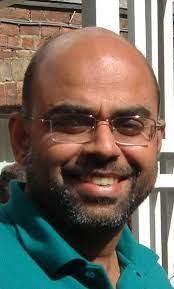

 Johns Hopkins University Press
Johns Hopkins University Press
Inscriptions of Nature: Geology and the Naturalization of Antiquity


Key Metrics
- Pratik Chakrabarti
- Johns Hopkins University Press
- Hardcover
- 9781421438740
- 9.1 X 6.3 X 1.1 inches
- 1.14 pounds
- Science > History
- English
 Secure Transaction
Secure TransactionBook Description
In the nineteenth century, teams of men began digging the earth like never before. Sometimes this digging--often for sewage, transport, or minerals--revealed human remains. Other times, archaeological excavation of ancient cities unearthed prehistoric fossils, while excavations for irrigation canals revealed buried cities. Concurrently, geologists, ethnologists, archaeologists, and missionaries were also digging into ancient texts and genealogies and delving into the lives and bodies of indigenous populations, their myths, legends, and pasts. One pursuit was intertwined with another in this encounter with the earth and its inhabitants--past, present, and future.
In Inscriptions of Nature, Pratik Chakrabarti argues that, in both the real and the metaphorical digging of the earth, the deep history of nature, landscape, and people became indelibly inscribed in the study and imagination of antiquity. The first book to situate deep history as an expression of political, economic, and cultural power, this volume shows that it is complicit in the European and colonial appropriation of global nature, commodities, temporalities, and myths. The book also provides a new interpretation of the relationship between nature and history. Arguing that the deep history of the earth became pervasive within historical imaginations of monuments, communities, and territories in the nineteenth century, Chakrabarti studies these processes in the Indian subcontinent, from the banks of the Yamuna and Ganga rivers to the Himalayas to the deep ravines and forests of central India. He also examines associated themes of Hindu antiquarianism, sacred geographies, and tribal aboriginality.
Based on extensive archival research, the book provides insights into state formation, mining of natural resources, and the creation of national topographies. Driven by the geological imagination of India as well as its landscape, people, past, and destiny, Inscriptions of Nature reveals how human evolution, myths, aboriginality, and colonial state formation fundamentally defined Indian antiquity.
Author Bio
Pratik is Chair in History of Science and Medicine, at the Centre for the History of Science, Technology and Medicine (CHSTM), University of Manchester. He is also the Director of CHSTM.
Pratik joined the University in 2015 as a ‘Project Diamond’ appointment. Previously he was a Reader in History at the School of History, University of Kent. He joined Kent as a Wellcome Lecturer in History of Modern Medicine in 2006. Prior to that, he was a Research Fellow at the Wellcome Unit for the History of Medicine, University of Oxford, UK (2002-2006).
Pratik received his PhD from the Centre for Historical Studies, Jawaharlal Nehru University, New Delhi, India in 2000. He taught in India, before coming to the UK.
Pratik has contributed widely to the history of science, medicine, and global and imperial history, spanning South Asian, Caribbean and Atlantic history from the eighteenth to the twentieth century. He has published five sole-authored monographs and several research articles in leading international journals on the history of science and medicine.
Beyond research and publication, Pratik has attracted research funding and has secured a number of large and smaller grants for his research. He joined the University of Kent with the Wellcome Trust University Award, for his project on laboratory research in British India. In 2012, he was awarded the Leverhulme Trust project grant for his project; ‘An Antique Land; Geology, Philology and the Making of the Indian Subcontinent, 1830-1920’.
In between these major projects, Pratik has also conducted research on the cultural and social history of water in India, part of which was published an article: ‘Purifying the River: Pollution and Purity of Water in Colonial Calcutta’. This forms the core of his future project on the history of water in the global south.
Pratik has received international recognition for his research. From 2010 to 2018 he was one of the editors of the leading peer-reviewed journal, Social History of Medicine, published by the Oxford University Press. In this role, he had expanded the scope of the journal in global and imperial histories. He is also one of the judges of the prestigious Dan David Prize on the History of Health and Medicine, 2020-2021. He also sat on the editorial boards of other journals in the history of science and medicine. He has been invited to present papers at colloquia in UK, India, Japan, USA and Europe on the history of science/medicine, globalization and ecological history.
In 2020, Pratik delivered several keynote lectures on themes such as Decolonization, racism (Is Deep History White?) the Anthropocene (Anthropocene and the Challenges of Deep Historical Imagination) and the global history of Science (Do we need a Global History of Science?).
Source: University of Manchester
Videos




Community reviews
Write a ReviewNo Community reviews